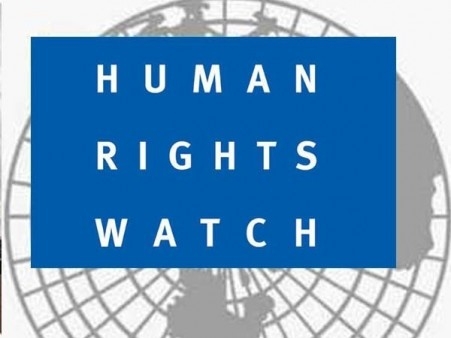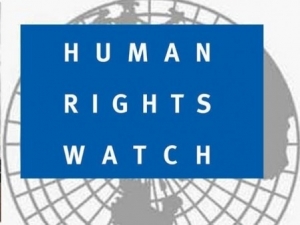Human Rights Watch Speaks about Flaws in Georgia
Human Rights Watch (HRW), a nonprofit, non-governmental, human rights organization, has released its World Report 2019, which includes Georgia.
The presidential elections in Georgia, lack of police accountability, occupational safety and labor rights, discrimination against sexual minorities and freedom of media were the main fields mentioned by the organization.
“The October 2018 presidential election brought Georgia’s past and current human rights problems to the forefront of political debates,” the report reads, adding that although “candidates were able to campaign freely and voters had a genuine choice,” there were instances of the ruling party’s misuse of administrative resources.
HRW also stresses that impunity for abuse by law enforcement officials remained a persistent problem.
The NGO says that by September, the Ombudsman’s Office had received 149 complaints of ill-treatment by prison staff or police and had petitioned the prosecutor’s office to launch investigations in eight cases. It added that none resulted in criminal prosecution.
The report says that in July, Parliament adopted a law creating the State Inspector’s Office, a separate body in charge of investigating abuses by law enforcement. The law grants the prosecutor a supervisory role over this body’s investigations, including the right to give mandatory directives on any investigative procedure, or change investigative decisions, which compromises the body’s independence.
“Authorities took steps to establish a mechanism to investigate abuse by law enforcement, but did not give it full independence,” the HRW added.
Regarding the drug policy, the organization says the authorities had previously had a harsh drug policy but noted that in July a Constitutional Court decision struck down all remaining penalties for marijuana consumption, and authorities proposed a bill that would legalize cannabis consumption at home, but imposed penalties for public use and in the presence of a child and while driving. Marijuana purchase or possession remained a crime.
The report also touches upon the problems in the field of sexual orientation and gender identity. It reads that according to the Georgian ombudsman, LGBT individuals often experience abuse, intolerance, and discrimination in every sphere of life.
“Homophobic statements by public officials feed widespread homophobia in society,” the organization said.
In the Media Freedom section, the NGO mentioned amendments to the broadcasting law, expanding the Public Broadcaster’s powers to, among other things, allow it to receive additional revenue from commercial advertising.
The opposition-minded Rustavi 2 TV ownership dispute and Iberia TV suspended broadcasting were also mentioned in the report.
In addition, HRW noted that in October, several top officials made statements attacking NGOs, after 13 leading human rights groups published a joint statement criticizing high-level corruption.
By Thea Morrison












